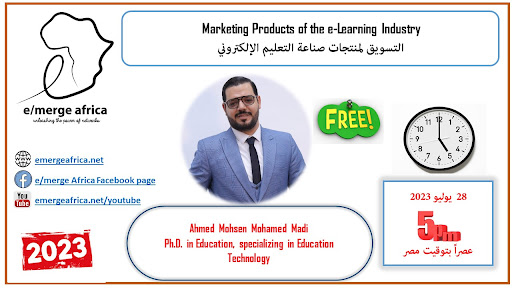Description of the session:
This session, hosted by ESSA, will focus on decolonising research through use of existing evidence and data from Africa. The workshop will be in two parts: Part 1 will help participants include more education research from Africa as they conduct literature reviews and design their research; Part 2 will explore how participants can draw on existing data sources within Africa to strengthen their research. At the end of the workshop, participants will have a good knowledge of a) the importance of including evidence and data from Africa in the design of research questions and implementation and b) practical approaches to finding and using this evidence and data.
The presenters will share resources and approaches for increasing use of evidence and data from Africa, and also welcome ideas and approaches from participants.
To join this session please sign up via Zoom Please note that attendance in previous workshops is not required
Overview and context
In a context where Sub-Saharan African education systems, economic systems, governmental systems, academia, and the region itself continue to experience the legacies of colonisation, this workshop series seeks to create and support a sustainable and critical community of emerging researchers, research-practitioners and academics in Sub-Saharan Africa (SSA), with a focus on the field of Education Technology (Edtech) in order to:
- address the colonial issues embedded in the field of Edtech and academic publishing systems and processes whereby epistemic orthodoxy systematically excludes non-Western epistemological, ontological, and methodological practices, and;
- produce ground-breaking work that will catalyse distinctively African educational scholarship, voices, thoughts, experiences and agendas.
This is the fourth in a series of workshops taking place over the course of 2023, covering critical educational technology conceptual frameworks, decolonising research methods, research tools, techniques, ethics and governance, and supporting SSA researchers towards publication.
Objectives of the writing workshops series
Goals involve:
- To create and support a sustainable and critical community of emerging academics in Sub-Saharan Africa concerned with the topic of Decolonising Educational Technology.
- Enable participants to submit high-quality papers to journals on educational technology such as – but not limited to – the UNESCO Chair Special Edition on Decolonising Education Technology.
Audience
The workshop is tailored to emerging researchers or research practitioners from Sub-Saharan Africa, with a particular focus on education, education technologies, critical pedagogies, decolonising education, decolonising edtech, education and social justice, digital inclusion and digital rights in education, EdTech and power. Participants from diverse backgrounds and minority groups are encouraged to attend.
Presenter’s Bio and Picture:
Dr Laté Lawson is an economist and data analyst with extensive policy-driven research experience. He specialised in human development, sustainability as well as geospatial and non-parametric analysis.
Before joining ESSA, Laté worked as research associate at the Bureau of Economic Theory and Application (BETA, France). Laté holds Master’s Degrees in both Economics and Statistics & Econometrics and a PhD in Economics from the University of Strasbourg.
Twitter handle: https://twitter.com/ESSA_Africa
LinkedIn: https://www.linkedin.com/in/lat%C3%A9-ayao-lawson-ph-d-9566a7198/
Dr Lucy Heady brings nearly fifteen years of experience in generating and using evidence to improve education, both in the UK and internationally. She also serves on the International Board of Trustees of Sabre Education, a UK-based non-governmental organisation dedicated to expanding access to high-quality early childhood education in Ghana and the Global South.
Lucy holds an MSc in Economics from Birkbeck College and a PhD in Theoretical Physics from the University of Cambridge
Twitter handle: https://twitter.com/lucyheady
LinkedIn: https://www.linkedin.com/in/lucy-heady-a2883a24/
About the partners/organisers
ESSA (Education Sub Saharan Africa) is an NGO working to connect evidence and data on education from Africa with those who have the power to change the system, including education leaders, policymakers, funders and young people themselves. Our focus is universities and colleges. We use research and work in partnership to drive improvements in the quality of education for young people. We also focus on strengthening the field of education research in Africa, leveraging the power of universities and colleges to improve education at all levels.
e/merge Africa is an educational technology network which is mostly for educational technology researchers and practitioners in African higher education. Since 2014 e/merge Africa has offered regular professional development activities in the form of online seminars and workshops and short courses.
Edtech Hub is a global research partnership. Our goal is to empower people by giving them the evidence they need to make decisions about technology in education. We use an integrated approach that marries research, technical assistance and innovation to address the educational challenges faced by low- and middle-income countries around the world. We do this by collaborating with partners to provide governments with the resources to effectively integrate EdTech into their education systems. We work globally, and also on the ground in 7 focus countries: Bangladesh, Ghana, Kenya, Malawi, Pakistan, Sierra Leone and Tanzania. We are supported by the Foreign, Commonwealth and Development Office (FCDO), Bill and Melinda Gates Foundation, World Bank, and UNICEF. Learn more at www.edtechhub.org.
Resources:
African Education Research Database | ESSA (essa-africa.org)

